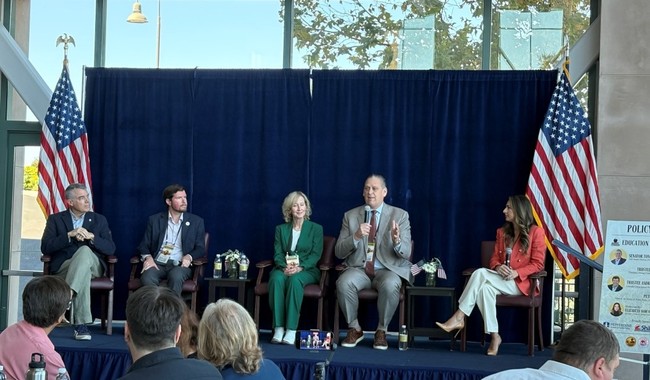Like a gathering storm on the horizon, change is brewing in America’s education system. At a recent California Young Republican Federation convention, a panel of education leaders laid bare what many conservatives have long suspected – the battle for America’s schools will be won or lost at the local level.
The message resonated through the convention hall like a church bell on Sunday morning: conservatives must step up and take direct action in their local school districts. State Senator Tony Strickland put it plain as day, urging attendees to attend school board meetings, hold elected officials accountable, and even run for office themselves.
“This isn’t just about talking anymore,” declared Orange County Board of Education Trustee Mari Barke. “It’s about showing up and making your voice heard.”
The panel made a compelling case for school choice and charter schools, arguing that competition breeds excellence. It’s a principle as American as apple pie – when parents have options, schools must improve or risk losing students. This market-driven approach stands in stark contrast to the bureaucratic model that has dominated American education for generations.
Meanwhile, a political tug-of-war over school funding has intensified between state and federal authorities. While the federal government pushes for reform through financial incentives, some state leaders have dug in their heels, threatening to withhold funds from institutions that align with federal education policies.
But something bigger is stirring in the hearts and minds of young conservatives. Pepperdine University’s School of Public Policy Dean Pete Peterson described what he sees as a watershed moment in American education, comparing it to the cultural awakening of the Reagan era.
Across the nation, conservative-led reforms are taking root. Ohio now requires students to study foundational texts like “The Federalist Papers.” Utah has established a dedicated civic center at its state university. Florida has taken bold steps to challenge what many conservatives view as ideological overreach in education.
The federal government’s Compact for Academic Excellence in Higher Education represents a return to core principles: academic freedom, merit-based admissions, institutional neutrality, and financial transparency. These aren’t just policy points – they’re a roadmap back to education’s true purpose as a marketplace of ideas.
As Peterson concluded, “We’re not just witnessing change – we’re part of a movement to restore balance to American education.” Looking at the eager faces of young conservatives in that convention hall, one couldn’t help but feel that this might just be the beginning of something profound in American education.
The stakes are high, and the path forward isn’t easy. But as any Texan worth their salt would tell you, nothing worth fighting for ever is. The question now isn’t whether change is coming to American education – it’s whether conservatives will be ready to lead it.


